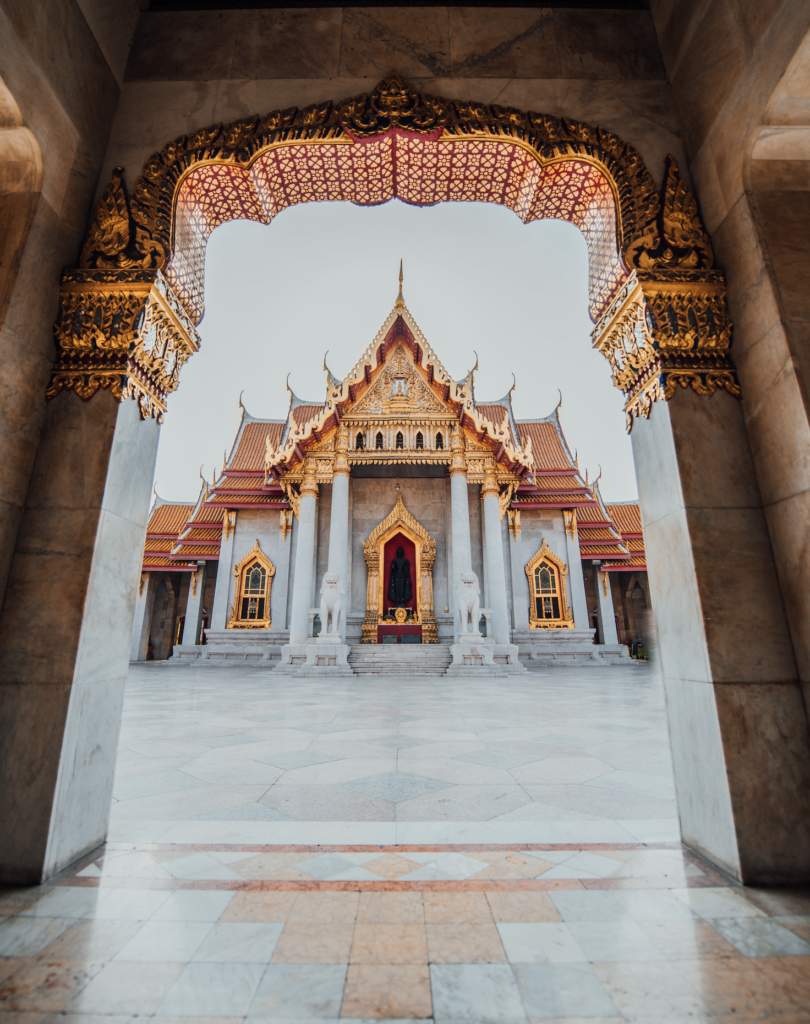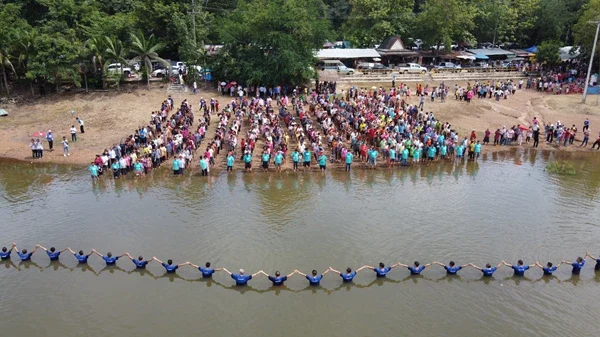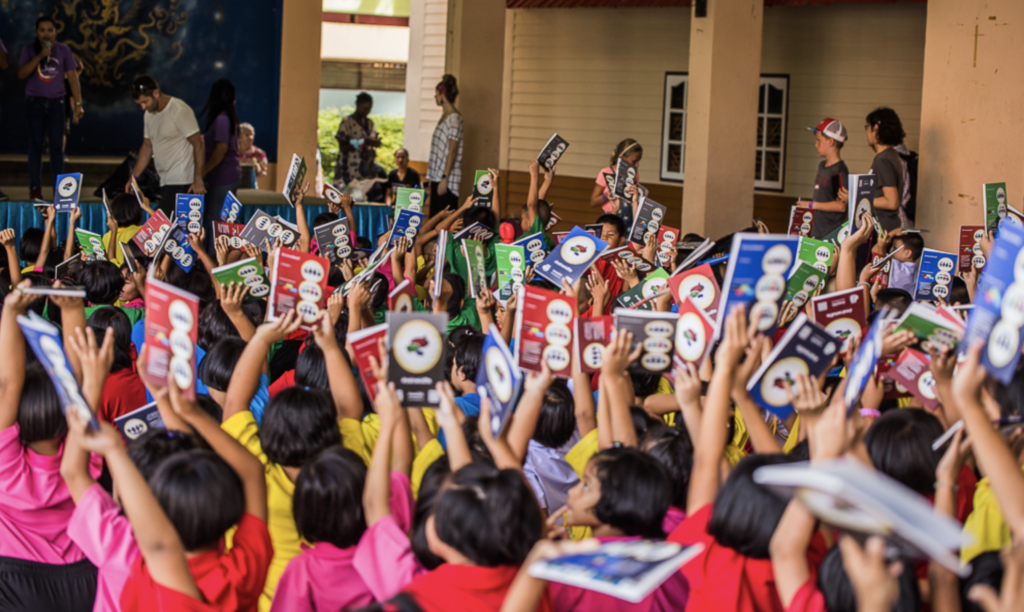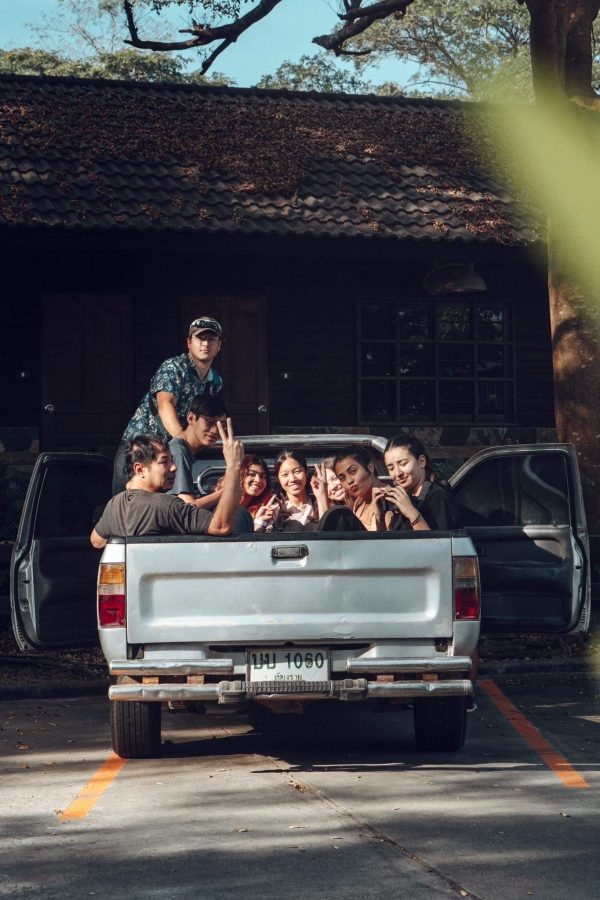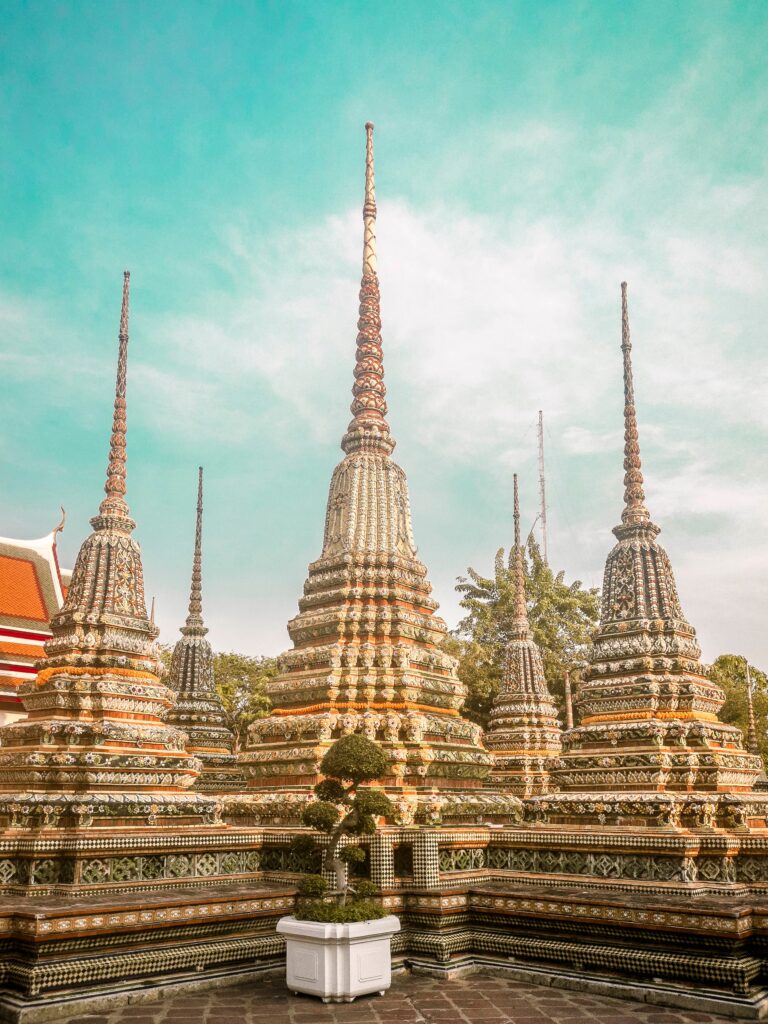
C&L Information
Banking
We strongly recommend that you set up your finances so that your support is deposited directly into your personal bank account in your home country. If you bring an ATM card with you with either the “Cirrus” or “Plus” symbol, you can withdraw finances quickly and easily as bank machines can easily be found throughout Thailand. Please be aware of the following:
NOTE – When bringing USD, it is best to bring $100 and $50 bills as they tend to get the best exchange rate when compared to $20, $10 and $5 bills. As well, the majority of banks and currency exchange counters will only exchange USD bills that have been printed after 2004.
NOTE – When bringing travelers cheques, please be aware that there is usually a $1 – $2 USD fee for each cheque regardless of the amount.
NOTE – If you are looking for a hassle-free and secure way to handle your teams funds while here, we recommend that you use an ATM card issued by your local bank. UPDATE – Please be advised that Thai banks are now charging a 150 baht surcharge fee every time you withdraw money. This is on top of any fees that your local bank may levy or any international fees. This means that you could potentially pay up to $10 USD per withdrawal.
Visa debit cards are also useful as they can be used at many stores although a 3% surcharge will be added. Credit cards are also widely accepted. When booking travel tickets through a travel agency, if you use a credit card, they will also charge you a 3% surcharge.
The local currency is currently rated at around US $1.00 = 35 baht. For the most recent currency exchange rate, please visit: http://www.bangkokbank.com/
Health Insurance
It is current YWAM Thailand policy that all long-term staff, as well as short-term volunteers, have health insurance prior to their arrival. While it is true that health care within Thailand is cheap when compared to the West, there have been instances where a family or individual came down with a serious health issue that required extensive treatment. It is during situations like these, that having health insurance is a much needed and appreciated blessing.
Further details on how much to budget per month can be found in the attached Budget document. For further information, please contact Talent Trust at – http://www.talent-trust.com.
Language School
During your time in the Culture and Language Phase you will need to learn the Thai language. There are six (6) modules that you will need to study. Modules 1-3 deal with the basics of Thai language while modules 4-6 cover reading and writing. It is the stated goal of the Culture and Language Phase that you are able to communicate effectively with the local Thai population by the time your studies of module 1-6 are complete.
Please recognize that learning the Thai language is of daily benefit to you as you will be able to order food, travel around, communicate with locals, share your testimony etc.
The YWAM Thailand National Office has an official Thai language teacher that provides you the opportunity to learn ‘on site’. By studying at the YWAM Thailand National Office, you are able to save on travel expenses and travel time. We typically prefer all Culture and Language Phase students to study 4 day a week, 2 hours per day. NOTE – You do have the option of studying as an individual or with a classmate (if available).
However, if you are on a tight budget, and are unable to meet the stated language budget as mentioned in the Budget document (that was sent to you earlier), then further options may be discussed with you. NOTE – While we do believe that studying with our official Thai language teacher is the best option for you, we do understand that some students may prefer a group (10+ people) classroom setting.
Relationships with Thai Nationals
By Sam Sarvis, Former National Director of YWAM Thailand and Phil Porter, National Director of YWAM Thailand
Our hope is that the C&L program we have established will aid you greatly as you adjust to living in Thailand. The requirements we ask you to fulfill have been set with your best interests at heart. We do feel that one “rule” needs further explanation and thus, we are including this article to that end. Specifically, we wish to discuss the requirement that states, “Refrain from any romantic relationship with locals within the first two years.” We would like to clarify some of the reasons behind this rule.
It must be noted up front that IN NO WAY is the leadership of YWAM Thailand against romantic relationships or against mixed-culture marriages. We DO believe that God often creates mixed-culture marriages and we celebrate these. However, the bottom line, in our opinion, is that most newcomers arriving from the West cannot understand the implications of marrying a Thai national. Of course, the following information does not only apply to new C&L staff. It also is for others who may have lived in Thailand for several years already and who are now interested in pursuing a relationship with a Thai of the opposite sex.
There are primarily two reasons for the general dating rule.
1) We believe that the first 12-18 months of a missionary’s time in the country is extremely important in setting the tone for the rest of that person’s life here. There are so many things to learn and absorb. It is also a time for developing and deepening our understanding of God’s call on our lives as it relates to Thailand. We need to really be able to focus on these things without the added stress/time of working through a cross-cultural relationship. We must recognize that ANY romantic relationship (even in our own culture) will naturally take up an incredible amount of emotional time and energy. We feel that if one’s C&L Phase is heavily focused on a relationship, it will severely limit the ability to really “get” a lot of the other important things.
2) More importantly, however, life, relationships, and especially the development of romantic relationships here is SO, SO different than in the West. The way that men and women relate, communicate and understand that communication, and the hidden messages in body language are extremely different than in the West. As well, unwritten (or un-communicated, but very much assumed) expectations from a Thai perspective are greatly different than the West. Some of these things might be learned from books but most of them can only be learned from being here for an extended period of time. Most of the Western men who have married Thai ladies would probably have appreciated having a better understanding of Thai culture/ways/thinking before starting a relationship if they were to do it over again. Not that they wouldn’t do it, but a lot of unnecessary stress and relationship challenges would have been avoided if there had been a better understanding on their part when they started the relationship.
A few thoughts to ponder regarding cultural differences between Thais and Westerners in regards to girl/guy relationships:
- Looking into a Thai girl’s eyes, if for more than a second or two, communicates something very clearly to her about your thoughts/feelings toward her.
- Spending time alone with a girl, whether at her work place, a restaurant, or just about anywhere, says to her very clearly that you are romantically interested in her.
- Buying or bringing any type of gift to a girl also communicates romantic interest.
- Going to visit a girl’s family/village, in their eyes, communicates to her and her family that you have intentions to marry. It is basically the final step before setting a date for the wedding ceremony.
- A Western guy giving an unmarried Thai girl a ride on a motorcycle will make most people who see this assume that she’s doing what certain other Thai girls do with Western guys.
- It is most likely assumed by the Thai girl’s family that all Western men are rich and that the Western man will assume responsibility for the needs of the girl’s entire family (and perhaps even extended family) from then on.
- The girl’s parents may well expect to live with the newly married couple for the rest of their lives and will certainly expect that the girl and her Western husband will meet any of their financial needs.
- A generous dowry is expected to be paid by the guy to the girl’s parents. Although the amounts can vary, the very minimum would be approximately US$1700 (and this amount would only be accepted by a Thai family who fully understood that the man is a missionary with very little financial resources). To refuse or balk at giving a dowry would be roughly the same as telling the parents that their daughter doesn’t have any value.
These issues are not necessarily “negative” aspects of Thai culture. It’s neither better nor worse than Western, just different. And, this is not an exhaustive list of differences. There are many other cultural differences as well. These are just a few that a new missionary should be aware of. As Westerners, we may think that our biggest cultural struggle will be the language. But actually, the spoken language is a lot easier to understand and learn than some of these other differences. We may feel that once we’ve learned to speak and recognize a few obvious cultural differences (such as not pointing our feet) that we can court or date here as we would in our home country. However, it doesn’t work that way.
There are some other things to consider before becoming romantically involved with a Thai, such as, what are your long-term plans? Are you thinking of staying here from now on or is there a good chance that you might end up returning to your home country in a couple of years? This is something that would need to be seriously considered and discussed before a relationship goes very far. It is a major issue for a Thai person to consider moving to a new country where they know no one, don’t eat the food, etc., for the rest of their life. If there’s a possibility that the missionary may be moving back to his/her home country long term, the Thai person should understand that very clearly (even if it’s not definite) before the relationship progresses at all. It is important that the Thai person think through the implications of such a move on their own life and on their relationships with their family, etc. On the other hand, many Thais are looking for a Western spouse specifically so they can move to a Western country. This makes them extremely prone to the temptation of pursuing a romantic relationship with a Westerner for the wrong reasons. A multi-millionaire has a hard time knowing who his/her friends really are. A Westerner in Thailand is in a similar vulnerable position.
With regards to ministry vision, what is the Thai person’s long-term calling? Do they know what your ministry vision is? What is their commitment to their current ministry or church? One of the difficulties with an issue like this is that it can seem to some like a “control” thing. Actually, no one has the right to tell you whom you can or cannot marry. There are times when a girl will let go of her vision to follow her husband (or future husband). We cannot judge if that is right or wrong. However, it is extremely important, before two people pursue a deep relationship, that both people know what God’s calling on each of their lives is and how this relationship might affect that calling. The reality is that once our emotions get involved, it can be a lot more difficult to clearly and objectively hear from God about anything that doesn’t directly involve the other person.
The primary factor in the “no dating locals” rule for the C&L time is the major differences between the Thai and Western culture. If an C&L staff guy from the West started getting interested in a missionary lady from the West, it wouldn’t be such a big thing. The relationship rules we have are not just to help you get married in a culturally appropriate way in Thailand. They are to protect both the new missionaries that are coming AND the local Thais. By this, we do NOT mean to “protect” them from falling into sin but rather to protect them from getting into something that they know nothing about–in other words, a romantic relationship with someone from almost “another world”, with a totally different world view, way of thinking, way of relating, way of viewing relationships, way of communicating, way of giving/receiving affection, and many, many more differences that aren’t necessarily evident in the beginning.
This rule was put into our policies because of a number of very, very difficult situations where Western men arrived here and fell in love with a Thai girl immediately. They weren’t “difficult” situations because of sin but rather because of major challenges. Most of these challenges (if not all) came from the fact that both parties became attracted to one another and then (naturally) proceeded on with the relationship in the same way they would have proceeded in a relationship with someone of their own culture, in their own country. However, they didn’t realize at the time that they didn’t have a clue about where the other person was coming from in regards to their ways of relating, outlook on life, and ways of communicating, etc.
Finally, one of the common challenges that most new missionaries will experience in the first couple of years is a sense of loneliness. You are away from all your close relationships, your family, your support system, etc., and you can be very vulnerable. At times like this, it is extremely easy to subconsciously meet that need by getting involved in a romantic relationship. Doing this during the C&L time can seriously hinder your progress, not only in learning the language, but also in learning other important cultural things. And more importantly, it can hinder you from really getting God’s heart for the people you are called to here in Thailand. We realize that two years can seem like an eternity, particularly if you have to wait that long for something. However, that has to do with perspective as well. If you compare waiting two years for a relationship so that for the next 40 years you will be where God wants you to be, doing what He wants, and doing it together with the one He wants, it’s not really that big of a sacrifice. Please know that more than anything else, we want God’s perfect will to be fully accomplished in your life, and His kingdom to be established in Thailand just as it is in Heaven.
Staff & Conference Fees
Every two years, YWAM Thailand hosts a National Staff Conference. In anticipation of this event, all staff, both intern or long-term, pay a conference of 250 baht per month. This fee will be credited to your conference fee account, and should prevent you from having to pay any additional fees at the time of the conference. Should the staff conference take place less than 2 years following your arrival, it may be necessary to ask you to pay an additional fee of no more than 3000 baht per person to cover housing and meals during the conference in lieu of an insufficient accumulation of conference fees.
Please consult with your ministry leader to confirm if you will need to pay staff fees.
Taxes
We ask all individuals and families, both short-term volunteers and long-term staff, to please look into your home country’s laws regarding the payment of taxes. We do understand that each country can vary in their tax laws and requirements. We do believe that it is wise on our part to ensure that our volunteers and staff are aware of any and all tax obligations that they may be held accountable for.
There have been several individuals in the past who were unaware of their tax obligations and ended up having to pay some very steep back taxes and penalties. We want to do all that we can to ensure that this does not happen again. If you need assistance, a tax accountant can be recommended to you. He is based in the US and assists several of our staff already.
Visa Situation
The visa situation in Thailand, as in many other countries, is constantly changing. Although we suggest that you apply for a one-year, multiple-entry, non-immigrant Type “O” visa, the Thai authorities may not grant this request. We have found that this has been happening more often in recent years; and although it is inconvenient for our staff, it is one of the challenges we must accept as staff / volunteers in a foreign land.
While there are many embassies and consulates around the world, there are some that we would recommend that you try to avoid. We would not recommend that you apply for your visa at the embassy in Los Angeles, California due to many previous failed attempts. However, we would recommend that you consider trying the Thai embassy or consulate in the following locations:
Portland, Oregon
Honolulu, Hawaii
Denver, Colorado
Chicago, Illinois
If you do receive a one-year, multiple-entry, non-immigrant Type “O” visa, you will still be required to exit Thailand every 90 days as part of the visa restrictions. Each time you re-enter the country, until the expiration date of your visa, you will receive an additional 90 day stay in Thailand. In most cases, these “visa runs” may be accomplished in one day or less. When your current one-year, multiple-entry, non-immigrant Type “O” visa expires, you will need to go to one of the above listed cities / countries or return to your home country in order to apply for another one.
Many of our long-term staff still do not have missionary visas and they are required to do these “visa run” trips, as well. Once you are in Thailand, at your specific ministry location, your ministry leader will be able to give you the exact costs of such a trip as well as advice on the best way for you to get there.
If you do not receive the one-year, multiple-entry, non-immigrant Type “O” visa, please contact the YWAM Thailand National Office administrator (office@ywamthailand.org); and they will assist you through alternative options.
CULTURE &
LANGUAGE PHASE
Nation wide
National Culture & Language Phase for New Foreign Missionaries
(Revised APRIL 2008)
The YWAM Thailand C&L Phase is a 12-18 month program designed to help the new staff individual to get a firm grasp on the Thai language and culture, as well as effective ways of ministering to the Thais. Its primary purpose is to equip those who will be joining YWAM Thailand as long-term staff.
Note: For individuals not working specifically with Thais, see Policies & Procedures IV.D.4.
The C&L Phase goals are:
- To gain cultural orientation and understanding which will enable one to minister effectively in the Thai context.
- To gain enough fluency in the Thai language to minister and communicate effectively with Thais.
- To confirm and clarify one’s own missionary calling to the Thai people.
- To integrate into our YWAM Thailand family.
C&L Phase Requirements & Guidelines
- Phase One
- Phase Two
- Phase Three
- General
Phase One – Orientation -The First Month
Housing is found for C&L staff, any major purchases are made and financial issues are dealt with. Visa situations are assessed and plans for visa renewals are made. C&L Phase orientation is given which includes initial cultural orientation, orientation to YWAM Thailand, and language program orientation.
Phase Two – Foundation – One to Twelve Months
R = Required G = Guidelines (but may also be required locally)
- R Foundational language study as defined in P&P document decided by the Local C&L Leader (i.e. OMF language program Modules 1-6).
- R Attend the C&L study/support group
- R Attend monthly location meetings.
- R All staff are expected to complete a full work week of 40 hours. However, this would include work duties, language learning, ministry involvement and travel to/from these activities.
- R Complete required reading list.
- R Attend a one-on-one meeting with the Local C&L Leader every three months.
- R Meet once per month for the first year with an accountability partner who is suggested by your C&L leader.
- G Visit at least two other YWAM Thailand ministries. Meet and speak with the leaders.
- G If committed to working with a specific ministry team after the C&l Phase, communicate with the Team Leader at least once every three months.
- G Attend any staff meetings which the Local C&L Leader deems necessary.
- G Visit several different Thai churches in the area and choose a place of worship (Thai or bi-lingual) within the first three months.
Phase Three –The Final 12-18 Months
At this point, your ministry leader will become your primary leader. For those who don’t yet have a specific ministry, your Local C&L Leader will continue to be your primary leader.
- R Completion of P.6 Thai language exam. And/or* ability to read, write (6th grade level), pray, give testimony, and share gospel message in Thai as well as study Social, Cultural and Bible modules. (*Exemption for not taking the P.6 exam applies ONLY IF your location has an approved assessment system in place.)
- R Continue to attend applicable meetings.
- G Attend the “Sharpening Your Interpersonal Skills” (SYIS) workshop.
General Requirements
- Recognize the role of a missionary as being a learner of the culture.
- Due to the requirements of language study, we ask that you refrain from extended travel outside of Thailand for the first year if possible.
- We also ask that you process major decisions (such as home-leave plans, housing changes, adoptions, etc.) with your C&L leader, just as any staff would process this with their primary ministry leader, as these issues often have a major effect on your overall adjustment.
- Because YWAM has an abundance of single staff and students from many nations, it is natural that romantic relationships may develop. YWAM Thailand is supportive of, and does not forbid, cross-cultural relationships. However, due to the special circumstances of Thai and other SE Asian cultures, we do have the following guidelines:
- We strongly encourage new missionaries to refrain from any cross-cultural, romantic relationships during the first year in Thailand.
- Potential couples within YWAM are encouraged to seek counsel early in their relationship from their C&L leader, base/team leader, and others who have experience in the country BEFORE major commitments or decisions have been made.
- Be aware that Westerners and Thais have very different courtship practices. For example, just visiting a Thai’s family or saying “I love you” can be considered an intent to marry. (See document “Relationships with Thai Nationals“) Even among two Western cultures and among two Asian cultures, you will find a lot of unexpected differences.
- While no leader has the authority to decide whether a relationship can continue or not, leadership does have the right to address problems coming from inappropriate conduct of a courting couple. YWAM staff should be examples of godly and culturally appropriate relationships.


